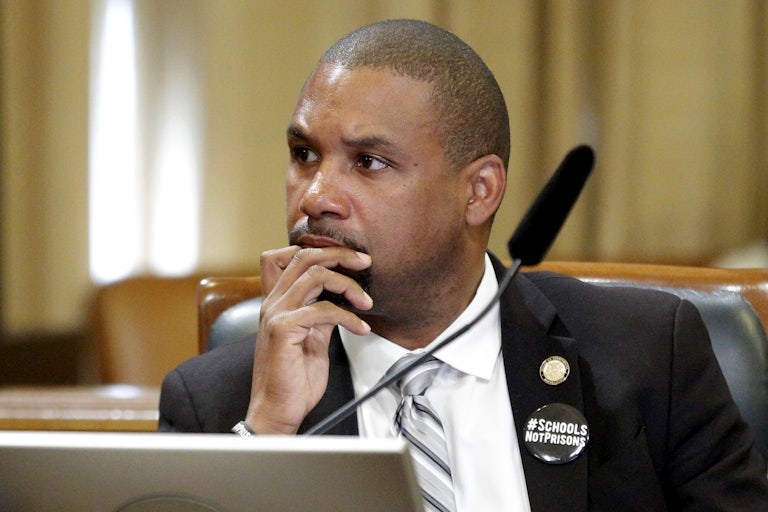U.S. Maternal Mortality Rates Skyrocketed in 2021, in Sign That U.S. Is “Not Faring All That Well”
A new CDC report reveals the spike in maternal deaths in the United States, especially among Black Americans.

Maternal mortality in the United States shot up by 40 percent in 2021, one of the worst rates in the country’s history, according to a report released Thursday by the Centers for Disease Control and Prevention.
The U.S. already has the worst maternal mortality rate among developed nations. These are deaths that occur up to 42 days after the end of the pregnancy, according to the World Health Organization.
In 2021, 1,205 people died of “maternal causes” in the U.S., at a rate of 32.9 deaths per 100,000 live births, the CDC report found.
In comparison, 861 people died of maternal causes in 2020, at a rate of 23.8 deaths per 100,000 live births.
Things were much worse for Black people, who suffered 69.9 deaths per 100,000 live births—nearly triple the rate for white people. From 2018 to 2021, Black people consistently had a much higher rate of maternal mortality than any other ethnic group, the CDC report showed.
The report shows the U.S. actually has one of the worst maternal mortality rates in the world. Data from the WHO showed that high-income nations had an overall rate of 12 deaths per 100,000 live births in 2020, while low-income countries had a rate of 430 deaths per 100,000 live births. Nearly all of these deaths could have been prevented.
The CDC report’s author, Donna Hoyert, warned that it’s hard to compare rates of maternal deaths between countries because of different data-tracking methods. But the U.S. is “usually not faring all that well,” she told NPR.
Hoyert, a scientist at the National Center for Health Statistics, said the rise in maternal deaths could be linked to the Covid-19 pandemic. “We had some forewarning … that it looked like maternal mortality rates were increasing during this pandemic period,” she said, noting that maternal deaths also increased from 2019 to 2020.
She also pointed out that Covid deaths in 2021 shifted to younger people, who are more likely to get pregnant.
Hoyert was optimistic that maternal deaths had peaked in 2021 and were starting to go down, but other health experts worry that there are other circumstances that will make the numbers worse. Hospitals and other health care providers are still struggling with a worker shortage, making it harder for people to get care.
Abortion restrictions that are increasing throughout the country could also increase maternal deaths. These regulations could delay people’s ability to get care for pregnancy complications.
A study released in November by researchers at the University of Colorado Boulder found that if abortion is banned nationwide, maternal mortality will rise 24 percent. Maternal mortality among Black people will shoot up 39 percent. But Republican lawmakers, who insist they are saving lives, continue to introduce bill after bill limiting access to abortion.








